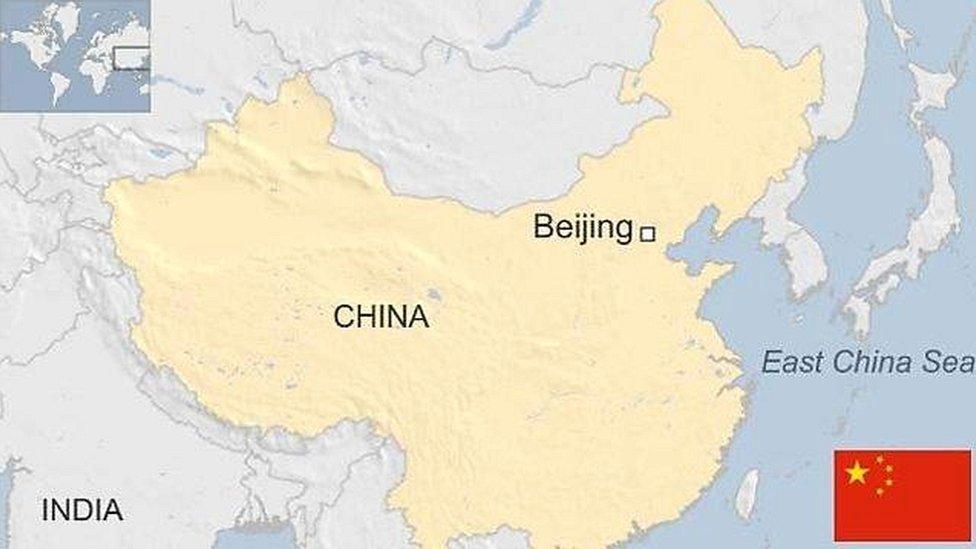Bangladesh country profile
- Published
This page is no longer being updated. It was last updated on 16 August 2024
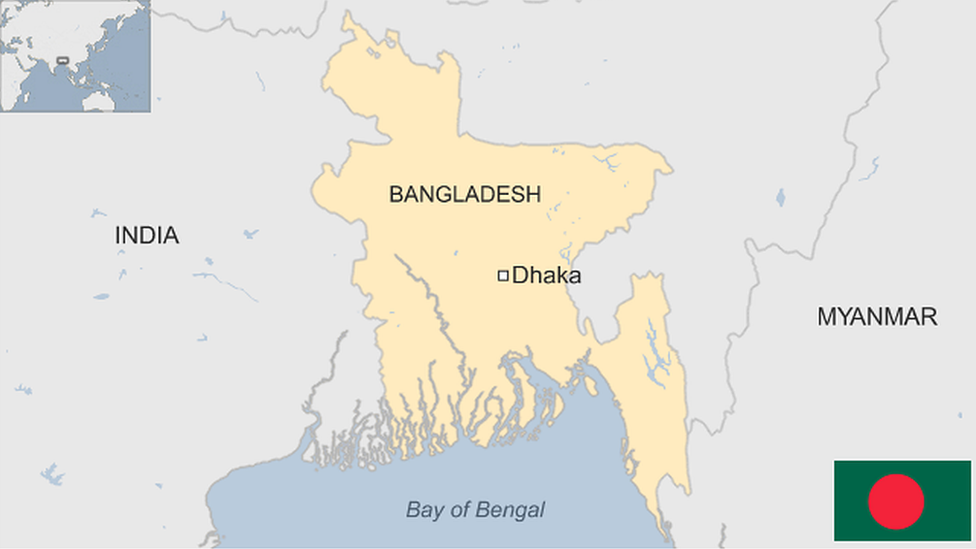
Bangladesh is one of the world's most densely-populated countries, with its people living in a delta of rivers that empty into the Bay of Bengal.
Poverty is widespread, but Bangladesh has in recent years reduced population growth and improved health and education.
Formerly East Pakistan, Bangladesh came into being only in 1971, when the two parts of Pakistan split after a bitter war which drew in neighbouring India.
Bangladesh spent 15 years under military rule and, although democracy was restored in 1990, the political scene remains volatile. Islamist extremism has also been rising in the traditionally tolerant country.
Bangladesh is low-lying and vulnerable to flooding and cyclones. It stands to be badly affected by any rise in sea levels.
Read more country profiles , external- Profiles by BBC Monitoring, external
PEOPLE'S REPUBLIC OF BANGLADESH: FACTS
Capital: Dhaka
Area: 148,460 sq km
Population: 169.8 million
Language: Bengali
Life expectancy: 71 years (men) 74 years (women)
LEADERS
President: Mohammed Shahabuddin
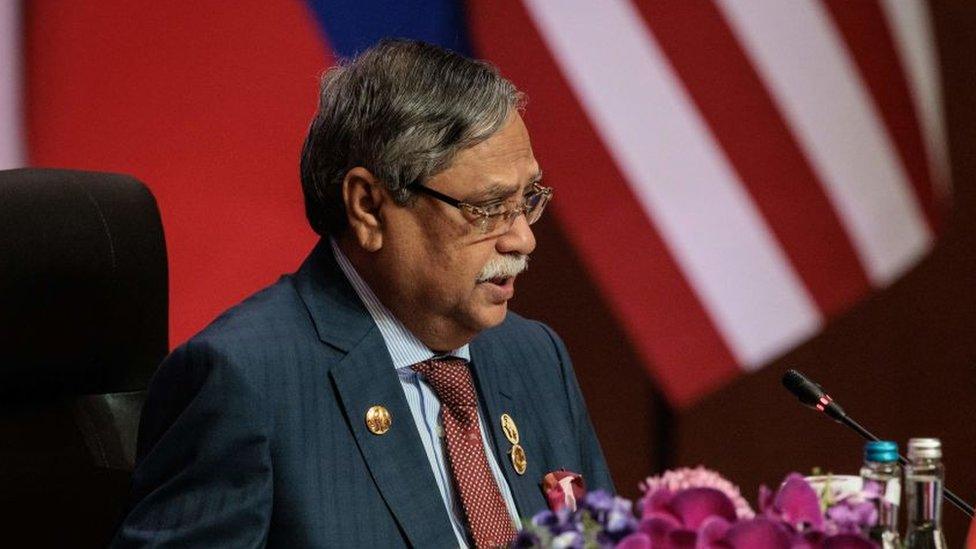
Mohammed Shahabuddin was elected unopposed in the 2023 presidential election. He was nominated by the ruling Awami League. Before being elected to the largely ceremonial post, he had served as a judge and as a commissioner of the Anti-Corruption Commission.
Prime minister: Muhammad Yunus
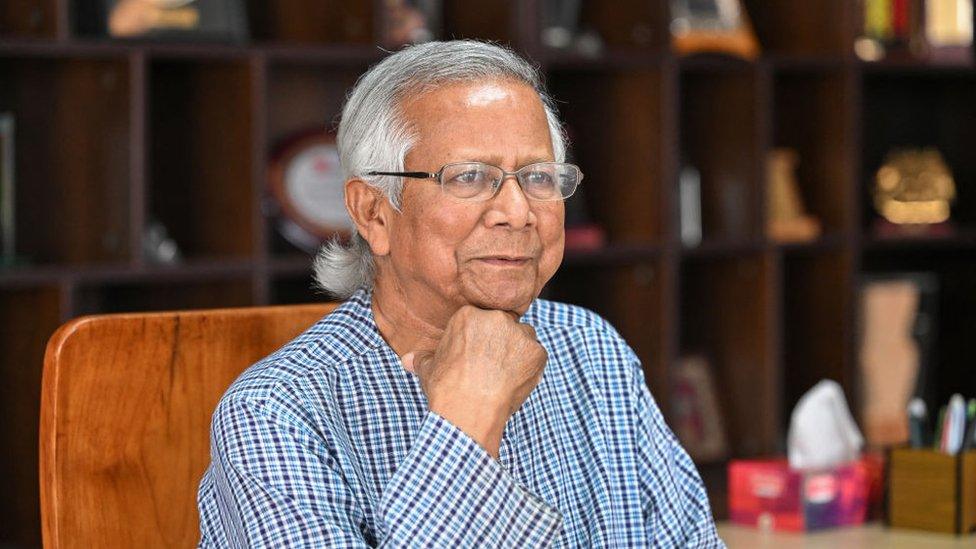
Nobel laureate Muhammad Yunus was sworn in as Bangladesh's interim prime minster in August 2024 after Sheikh Hasina - the woman who ruled Bangladesh with an iron fist for 15 years - fled across the border to India.
Prof Yunus took an oath at the presidential palace in Dhaka along with more than a dozen members of his new cabinet, vowing to perform his duties "sincerely" and to "uphold, support and protect the constitution".
Ms Hasina resigned as prime minister after weeks of student-led protests - which left hundreds dead - escalated and culminated in calls for her to stand down.
The decision to name Prof Yunus as chief adviser of the interim government followed a meeting between President Mohammed Shahabuddin, military leaders and student leaders.
The students had been clear they would not accept a military-led government, but wanted Prof Yunus to lead.
The hope is Prof Yunus, the so-called banker for the poor, will bring democracy back to Bangladesh after years of autocratic rule.
What finally tipped the scales for Ms Hasina was the ferocity of the clashes between the protesters and police.
Her decision to flee was also hastened by the military, which would have put pressure on her to step down. The army, which has ruled Bangladesh in the past and is still hugely respected, has an outsized influence over the country's politics.
Reform is key, according to Prof Yunus. It was a simple demand for reform of a quota system which reserved some public sector jobs for the relatives of war heroes, who fought for the country's independence from Pakistan in 1971, that sparked the protest movement in the first place.
MEDIA
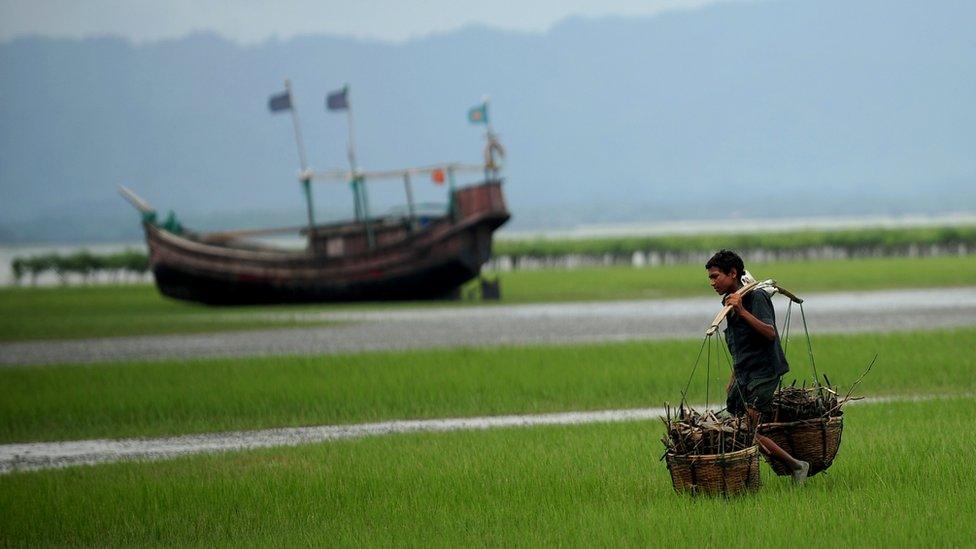
Media outlets tend to be politically polarised
TV is the leading medium. State-run BTV has national terrestrial coverage and privately-owned satellite channels are widely watched.
Media tend to be polarised, aligning themselves with one or other of the main political factions.
TIMELINE
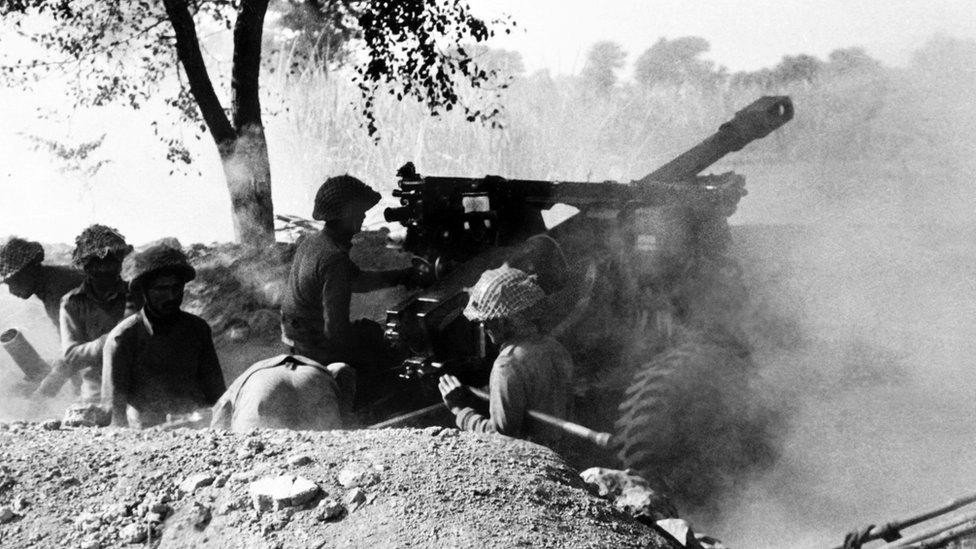
1971: Indian troops fire on Pakistani positions in support of Bangladesh during its eight-month war for independence
Some key dates in the history of Bangladesh:
1204 - Muslim conquest of Bengal.
14th Century - Bengal sees the rise of three city-states; Sonargaon, Satgaon and Lakhnauti.
1352 - Shamsuddin Ilyas Shah unites the three city-states into the Bengal Sultanate, which dominates the area for much of the 14th, 15th and 16th Centuries.
17th Century - Mughal Empire controls Bengal.
18th Century - Nawabs of Bengal, within the Mughal Empire, become the de facto independent rulers of the area.
1757 - After the Battle of Plassey, Bengal is the first region of the Indian subcontinent to be conquered by the British East India Company.
1947 - British colonial rule over India ends. A largely Muslim state comprising East and West Pakistan is established, either side of India. The two provinces are separated from each other by more than 1,500km of Indian territory.
1971 - Bangladesh (formerly East Pakistan) becomes independent after a war with West Pakistan - now just Pakistan - with India backing the Bengali nationalists against Pakistan.
1973 - First parliamentary elections give the Awami League a landslide victory.
1975 - A military coup sees founding president Sheikh Mujibur Rahman and most of his family members killed, putting an end to civilian rule.
1979 - Second parliamentary elections brings former army chief Ziaur Rahman's Bangladesh Nationalist Party to power.
1981 - President Ziaur Rahman assassinated during abortive military coup.
1982 - General Hussain Muhammad Ershad assumes power in coup. He suspends the constitution and political parties.
1991 - The country returns to a parliamentary system of government.
2006-2008 - Political crisis sees leaders of both major parties briefly detained.
2014-17 - Bangladesh faces a campaign of violence by Islamists against bloggers, atheists and secular intellectuals.
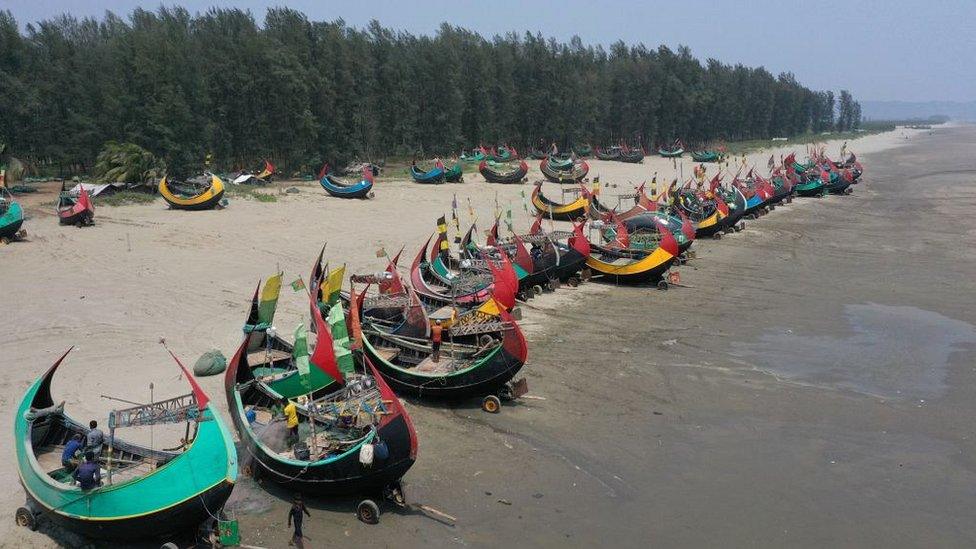
Traditional fishing boats on the beach at Cox's Bazar, Bangladesh
Related topics
- Published15 March 2024
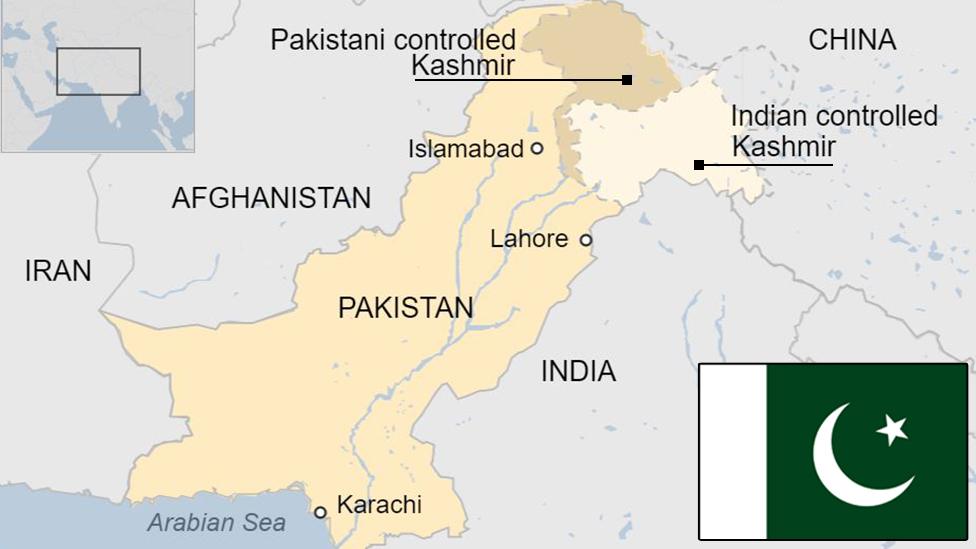
- Published10 March
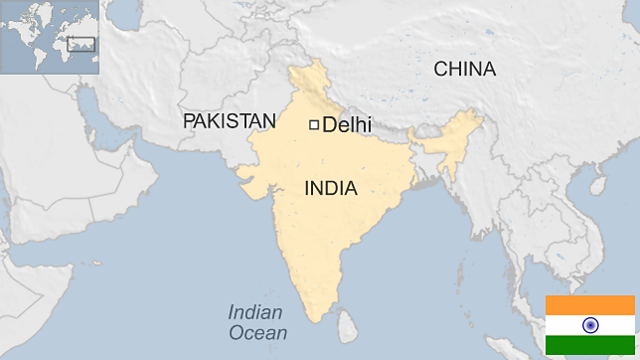
- Published10 March
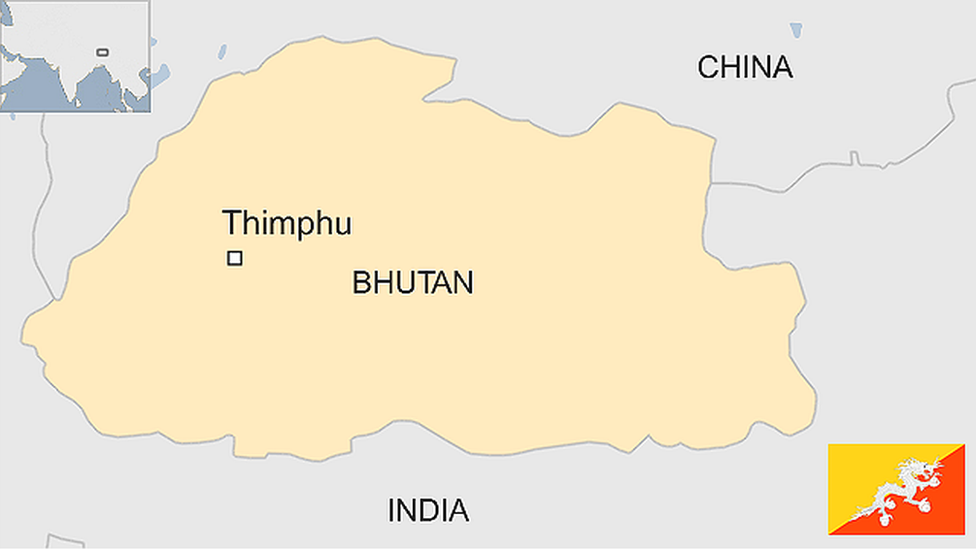
- Published26 May 2023
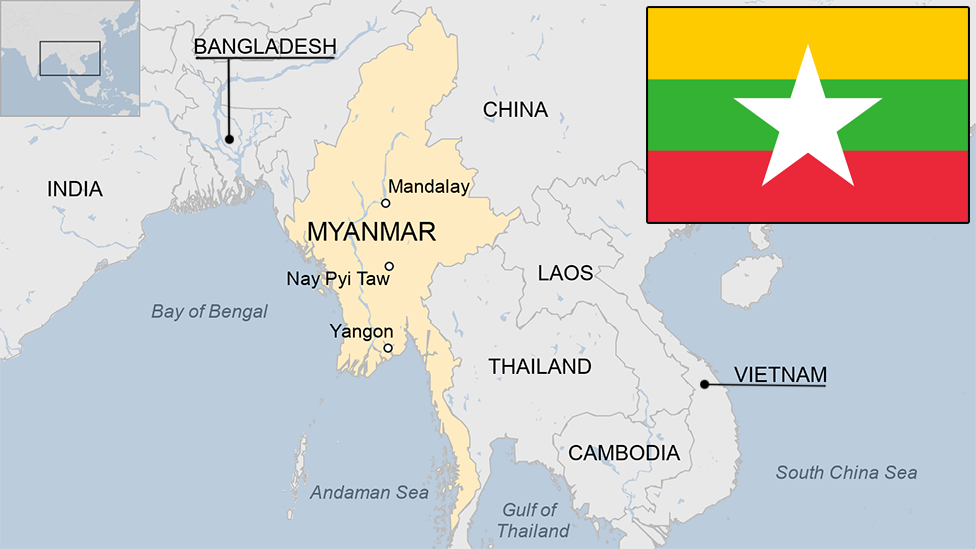
- Published25 August 2023
